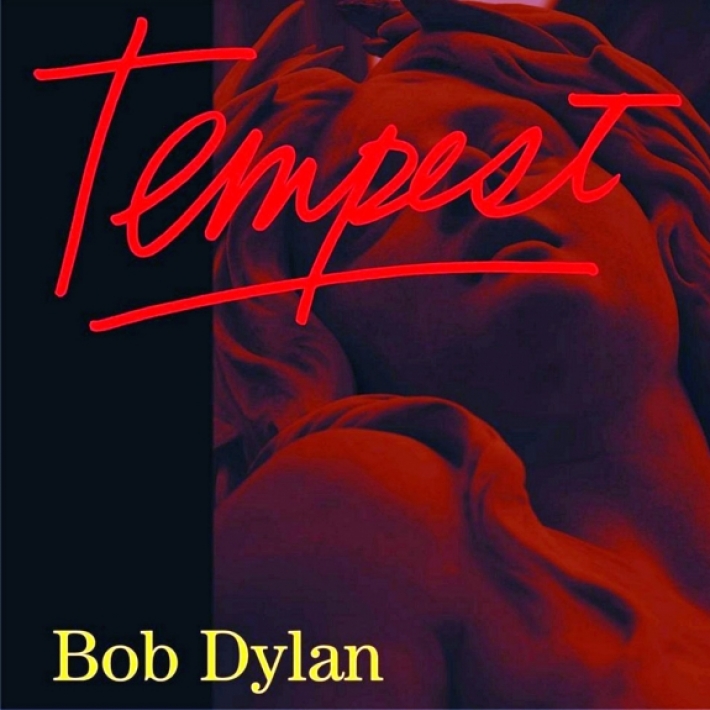

SAMAR
Dylan’s previous album, his Christmas album, surfaced amid stifled laughter. And concerned therapists. It really tested the limits of the “Buddha pagal ho gaya hai” phenomenon. Unlike it, his new album, Tempest, was recently unveiled to sweaty anticipation and some serious interest. And, unlike it, Dylan wrote the songs here. Music’s most legendarily pricy genius has toned down the pricy, and here, he straight-up offers a large slice of himself.
Tempest, his 35th record (that’s right) comes in his 50th year as a recording artist (that’s right). It demonstrates again that he can turn bad news into good news, deficiency into asset like no other. Clocking nearly 70 minutes, it is an emotional salad of unrest, mortality, morality, love, hate, vengeance, everything. Dylan’s sincere effort shines as he forays through the pleasures and regrets of life, on a wave of American roots music. Regularly quantum-leaping to the 1930s and ’40s, he digs up traditional forms of the blues, folk, country, rockabilly, and swing. All produced with contemporary grandeur by Jack Frost, Bob’s producer alter-ego. Telling stories of misunderstandings, disillusionment, and the politics of emotions, he wins you over by acting his age.
The opener, ‘Duquesne Whistle’, begins with the most nostalgic, whimsical swing melody ever conceived and continues Dylan’s peculiar interest in trains, using them as all kinds of metaphors. A great, upbeat kickoff. With this playful sense of cheer established, he unleashes what is one of his darkest and most brutal records. It is looking for blood and has nothing to lose. Whether addressing women or the state of the world, songs like ‘Pay in Blood’, ’Early Roman Kings’, and ‘Narrow Way’ show that he still carries an enormous slingshot. Speaking not from a pedestal, but often as the underdog, he is the same bag of contradictions. Threatening and jesting, interested and disdainful, loving and hostile. On the ballad ‘Tin Angel’, he tells a blood-soaked tale of jealousy and betrayal in love and kills his characters with relish. The album’s uniformly emotionally stable music set against some of the songs’ neurotic and acidic lyrical content make for a typically Dylan overall effect. No musical adventures are sought on this (sadly) largely word-driven album, though. Dylan keeps going back to that original catalyst of misery: the blues. On the title track, another ballad, he uses ballroom and waltz to retell the sinking of the RMS Titanic. For 14 minutes, for forty-five verses, Dylan is a relentless bore on the album’s biggest letdown. Pride is salvaged by his straight-faced displays of tenderness on ‘Long and Wasted Years’, and the disarming ode to his late old mate John Lennon, ‘Roll on John’.
The old man is throwing fists. His carcinogenic voice, coarser than ever, fits the blues like a glove. He keeps the rough edges in and, with deadly intent, more than holds his end up. Lyrically, he’s as good as ever, which, when paraphrased, means Tempest is the stuff of poetry. However, the record also disappoints. The music is often just a vehicle for words. He regularly rambles on and the songs end up overstaying their welcome. Too repetitive and lazy. Still, it’s a Dylanologist’s dream; epic, lengthy, loaded with wordplay and cynicism. Dylan is out there to win and have fun in the world he so mistrusts. As speculation grows about Tempest being his final album, the 71-year-old seems typically unconcerned. With promises like “I’ll pay in blood, but not my own”, he sounds like he’s ready to live more life and, fingers crossed, make more music.
Previous Article Adam and the Fish Eyed Poets - Songs from an Island Adam and the Fish Eyed Poets - Songs from an Island
|
Next Article Big Bang Blues - Bigger Than Blues Big Bang Blues - Bigger Than Blues
|


Leave a comment